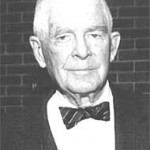Why We Fight
 I often wonder why it is that some people disagree with my political views. My logic is unassailable, the breadth of my historical knowledge is unmatched, my moral foundation cannot be questioned, and I am far more charming and better looking than my opponents. Why don’t they agree with me?
I often wonder why it is that some people disagree with my political views. My logic is unassailable, the breadth of my historical knowledge is unmatched, my moral foundation cannot be questioned, and I am far more charming and better looking than my opponents. Why don’t they agree with me?
My summer project was to seek an answer to this mystery. I chose three books to read that I thought would provide some insight into the ideological fault lines that seem to run through every facet of our daily lives (and indeed seem to run through this very blog). What follows are the lessons that I have learned. I suppose other readers might draw different lessons. My recommendation is that you read these books for yourself.
My first goal was to understand why the “big government” charge persistently leveled by Republicans against the Obama Administration seems to resonate with some people, but not with others. Some clues are provided by Gary Wills in A Necessary Evil: A History of American Distrust of Government. Writing some ten years ago, Wills documents the origin and growth of the arguments against “big government” and in favor of individualism and local control over the course of our nation’s history. Over time, he argues, these disparate strands of thought have coalesced into a more general anti-government creed. The specifics of this creed – the belief that amateur, local and voluntary conduct creates greater public well being than professional, centralized, and mandatory regulation — resembles the political philosophy currently espoused by many of President Obama’s critics.

 In an
In an  As my students in Constitutional Law are well aware, my Con Law professor in law school was Archibald Cox. If you doubt me, you can look it up on his
As my students in Constitutional Law are well aware, my Con Law professor in law school was Archibald Cox. If you doubt me, you can look it up on his